Known for its strong flavour and numerous benefits, dill (Anethum graveolens), fennel-bastard, false anise or stinking fennel, is an aromatic annual plant cultivated for its leaves and seeds with a powerful aniseed taste. Dill seeds are ideal for flavouring fish, marinades, fromage blanc, vinegar pickles… In addition to its aniseed flavour, like its cousin fennel, dill is very decorative with its fine, airy foliage and yellow umbels carried over 1 m high. Both aromatic and ornamental, it appears in ornamental gardens in a cottage-garden spirit as well as in vegetable plots among your edible plants or in herb gardens. To enjoy it all year round, you can easily harvest dill seeds at the end of summer. Discover how to collect and store dill seeds effectively, and the best ways to use them.
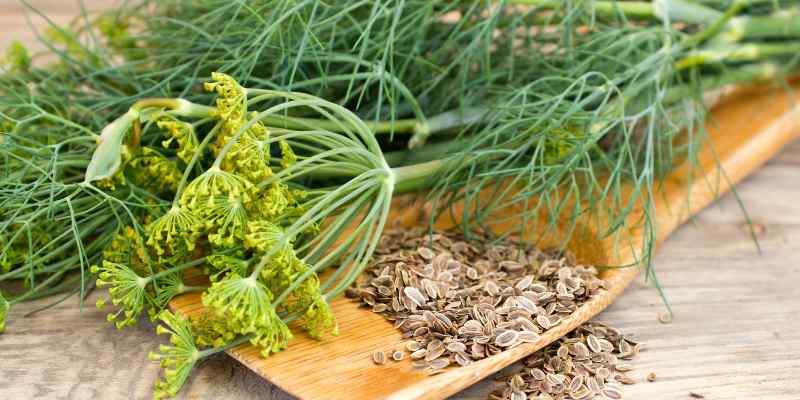
Best dill varieties for seeds
All dill varieties produce culinary seeds. The yellow umbels, much visited by bees, give way to numerous highly aromatic brown seeds that reach ripeness in late summer. Running to seed varies according to variety, as with dill 'Hera', or ‘Dense-leaved dill’ which is less prone to running to seed, extending the leaf-harvest period. If you have a small vegetable patch or balcony garden, dill 'Compatto' is a particularly compact variety, ideal for container growing. Among our finest dill varieties as plants or seeds to sow:
- Dill 'Thalia Organic', a robust dill, little prone to running to seed, ensuring high yields from spring through late summer.
- Dill officinale, a variety with dense, very finely divided and aromatic foliage.
- Dill (Anethum graveolens), the typical species, vigorous with stems reaching over 1 m in height.
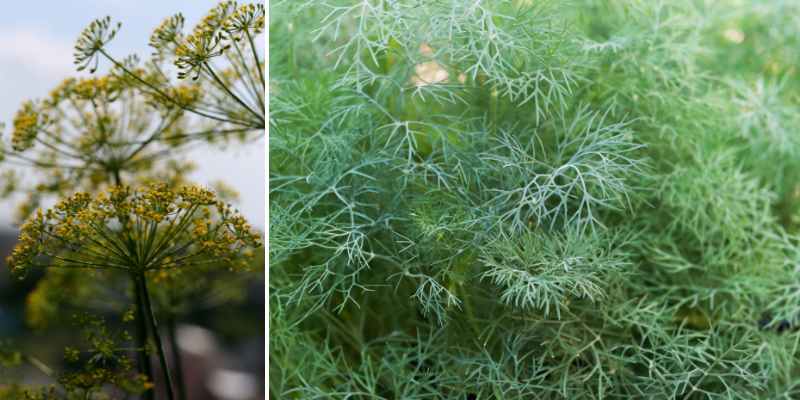
When to harvest dill seeds?
Dill seed harvest begins when the seeds turn brown and start to detach from their umbels, generally about two to three weeks after flowering, that is at the start of autumn, from September through October. Do not wait too long, as they fall easily when fully ripe.
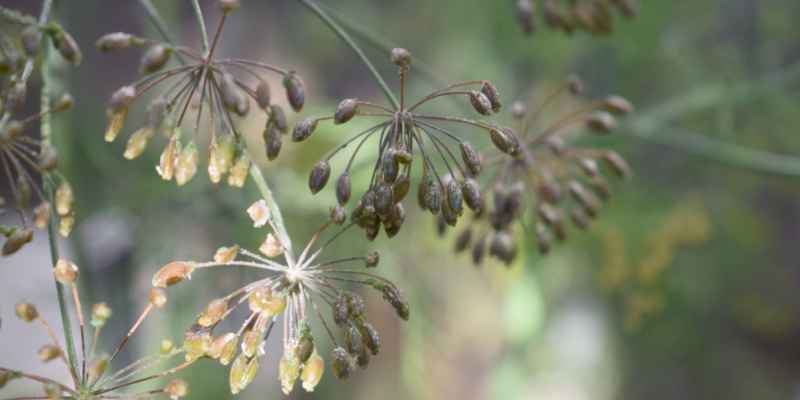
How to harvest and store dill seeds?
Choose a dry day to harvest seeds. Be careful during this operation, as the seeds are light and blow away easily.
- Before harvesting, pick the best flower heads to let set seed
- After running to seed, use scissors to cut the fully dry umbels
- Over a clean tea towel or newspaper, shake the umbels to collect the seeds
- If needed, separate the seeds from the flower debris
- Dry the seeds in the shade, cover them with a cheesecloth to protect from insects and birds
- Drying takes about 3 days
How to store dill seeds?
Once your dill seeds are dried, it is important to store them well to preserve their flavour and benefits. Place dried dill seeds in an airtight box or glass jar and keep in a dry, dark, cool place. You can also store them in paper bags. In this way, dill seeds can be kept for up to 3 years without significant loss of flavour. However, for optimal aroma, it is recommended to use them within the year following harvest. It is preferable to store them whole and grind only before use to retain maximum aroma. Indeed, once ground, dill seeds begin to lose their essential oils, which reduces their aroma and health benefits. Finally, if you wish to sow them again, dill seeds retain their seed viability for 3 years.
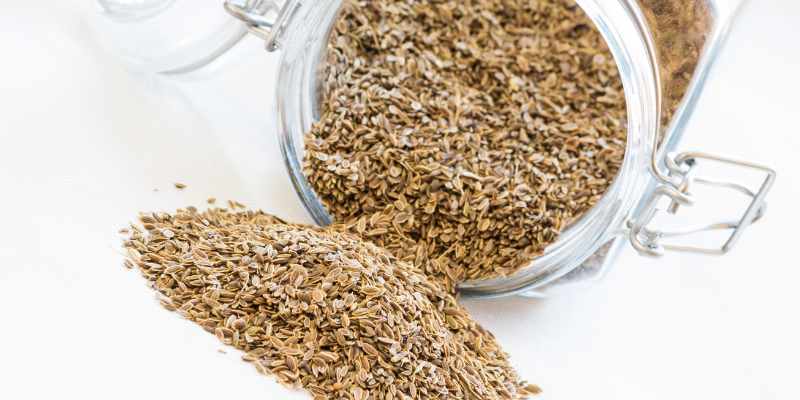
How to use dill seeds?
With their aniseed flavour halfway between fennel and cumin, dill seeds are perfect for flavouring marinades, vinegar pickle jars, spinach, rice and some culinary specialities such as gingerbread or as part of a curry blend. They can replace other condiments such as anise, caraway and star anise. Seeds can be used as an infusion, or even to flavour a jam. Feel free to slip a few seeds into a bottle of cider vinegar or olive oil. They can be used whole, crushed or ground.
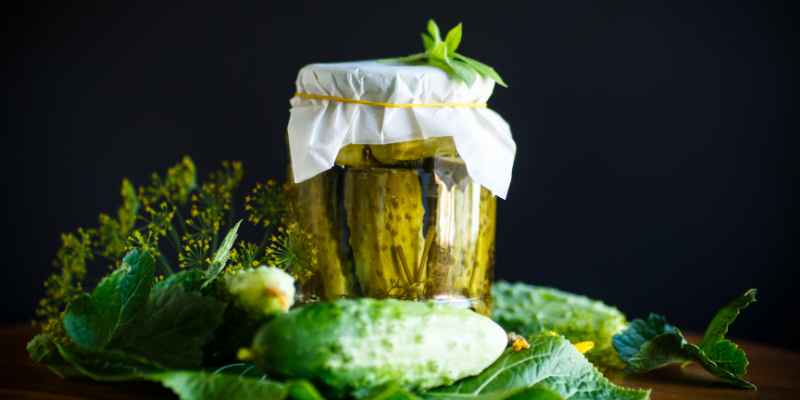
Benefits of dill seeds
Beyond their culinary uses, dried dill seeds are also recognised for their medicinal properties. They are diuretic, helping to combat water retention. They have digestive and calming properties, and promote sleep. Indeed, an essential oil with sedative properties is extracted from the seeds.
Further reading
- Discover our factsheet on dill as well as our collection of dill plants and seeds!
- Discover our selection of 15 medicinal plants with many benefits… to grow in your garden!
- Our finest herb seeds are here!































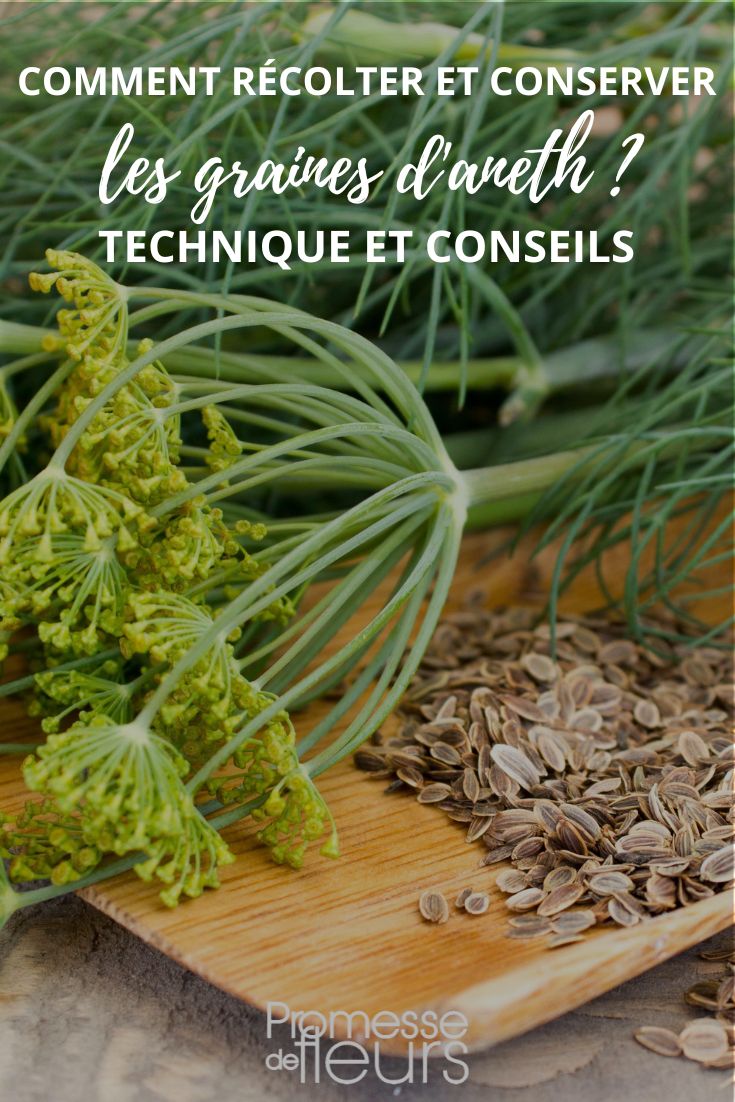
Comments